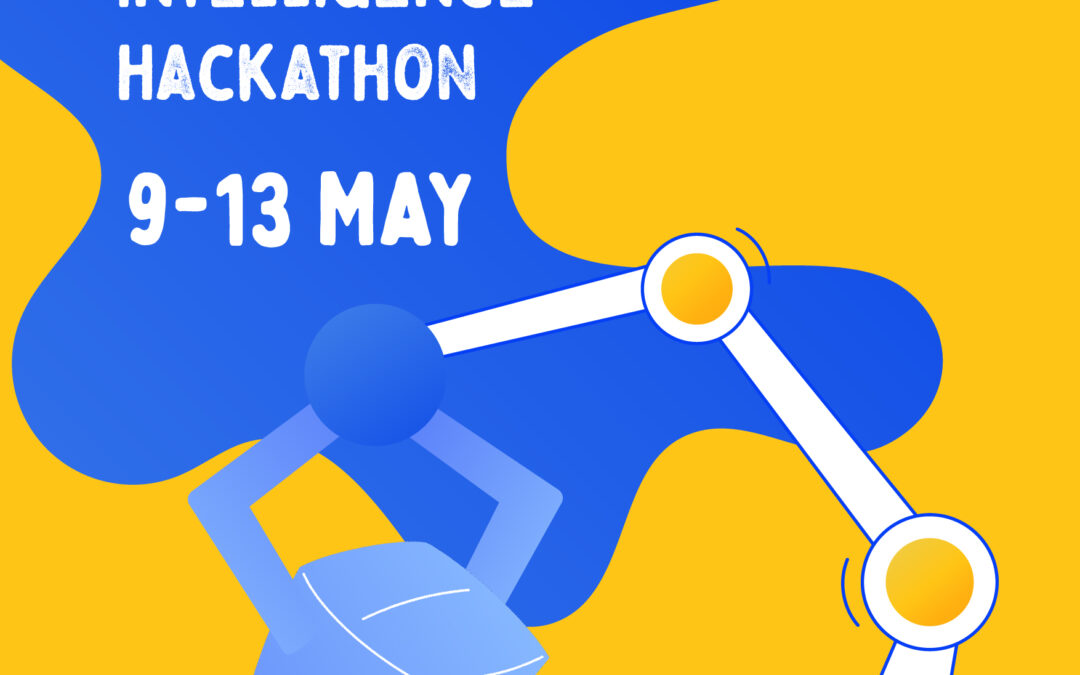On May 9-13, an international students’ hackathon of the project “Introducing Artificial Intelligence to Vocational Schools in Europe” took place in Kaunas at Kauno informacinių technologijų mokykla (KITM).
This activity was a part of the project that has been running since October 2020 and finishes in the end of July.
Hackathon is an exceptional event in the project as it gathered students from 4 schools to learn, create and compete in the field of programming AI. All students selected for the activity had completed a pilot course “Introduction to Artificial Intelligence” in the period between October 2021 and May 2022. They had a 60-hour classroom training using such hardware as robotic arms, conveyor belts, JetBot Nano robots – prototypes of equipment used in the industry.
Participants came from 3 partner countries: Finland, Malta and Lithuania. Four teams of students and teachers represented project partners MCAST (Malta), Sedu (Finland), TAI (Finland) and KITM (Lithuania). Each team comprised 5-6 students and 2 teachers.

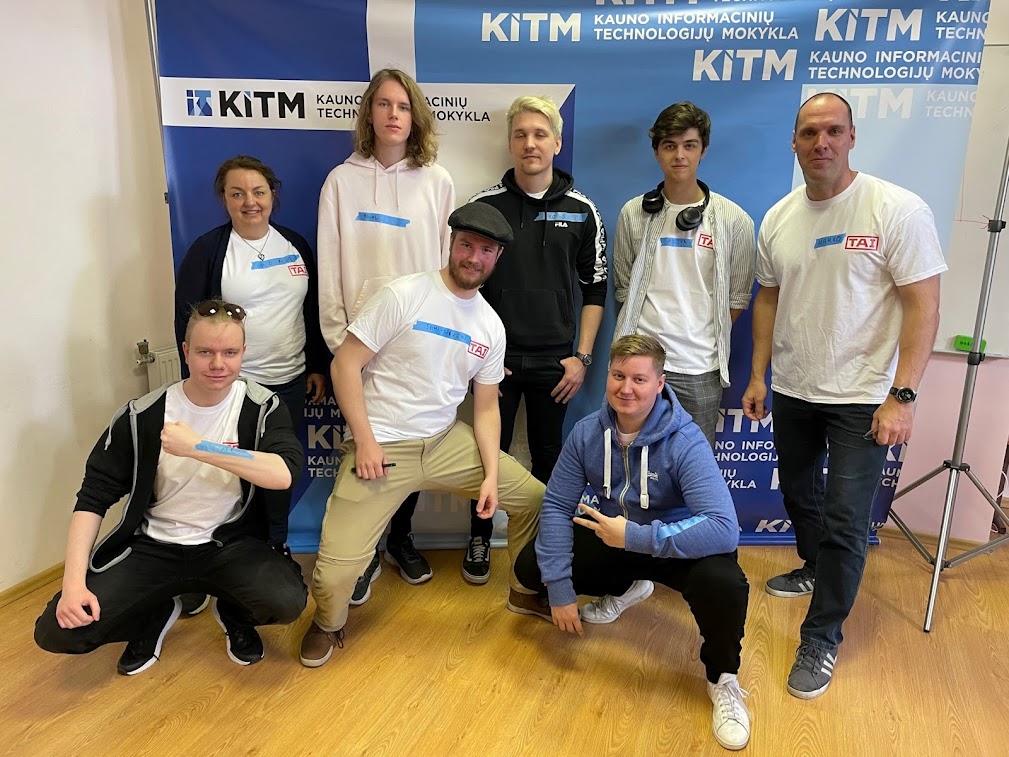
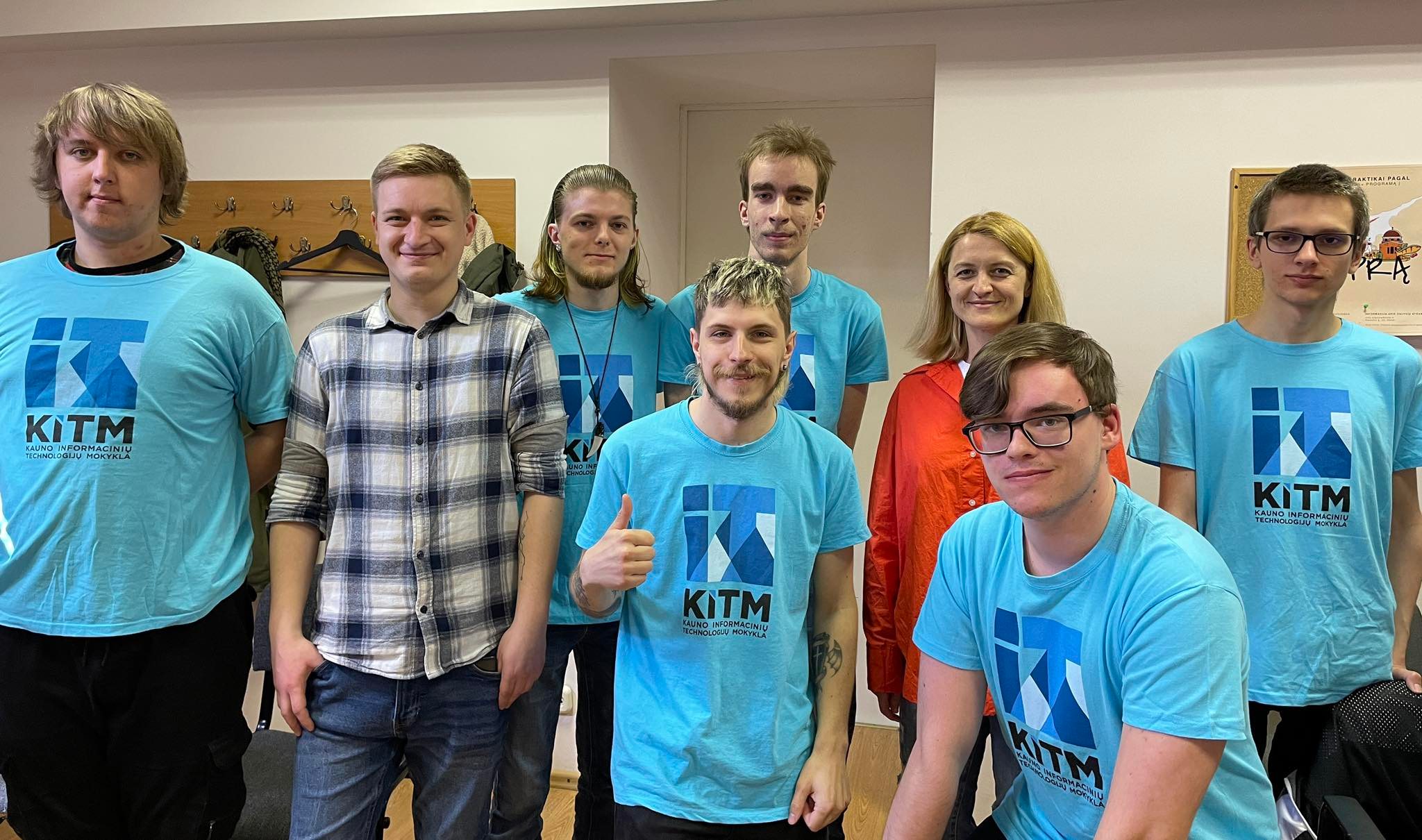
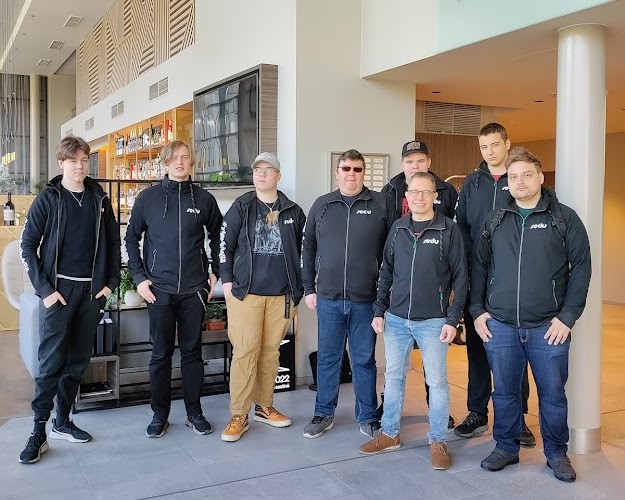
Hackaton’s topic was artificial intelligence solutions for the enhancement of everyday life.
Teams worked according to the Scrum methodology. Teachers received the roles of Scrum Master and Product Owner while the students were the Development Team. Teams selected preferred project management tool (Jira, Trello, etc.) for the development of their projects. Together with the Scrum methodology, this has given the students a chance to practice in an environment usual at IT companies.
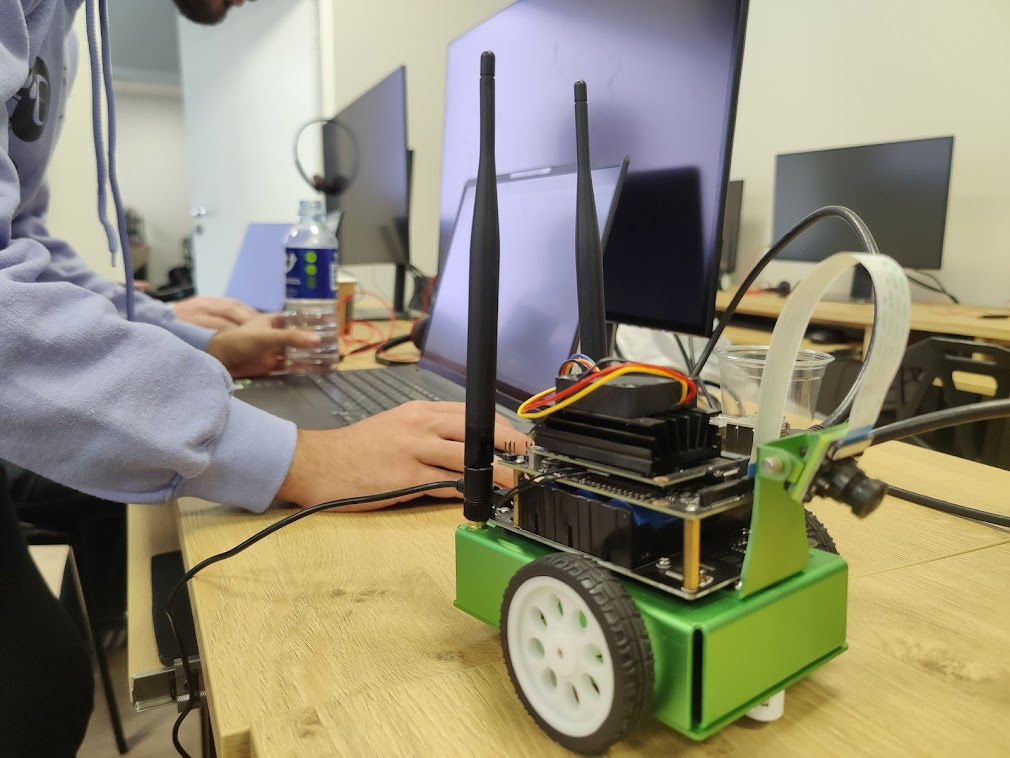
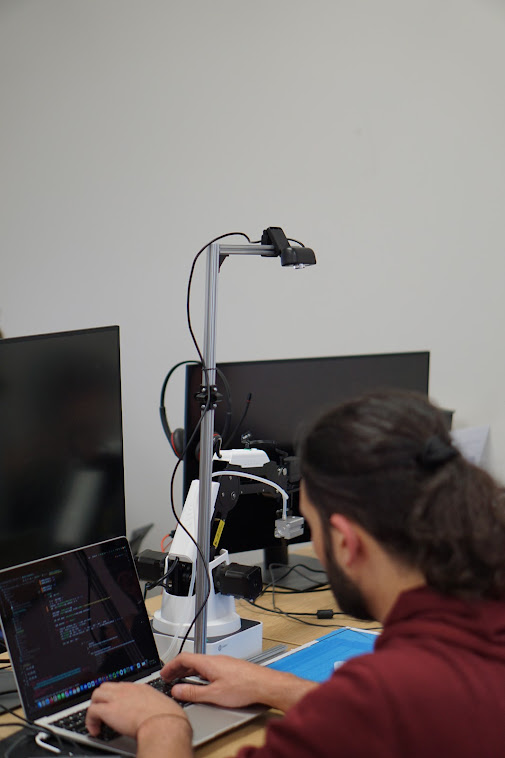
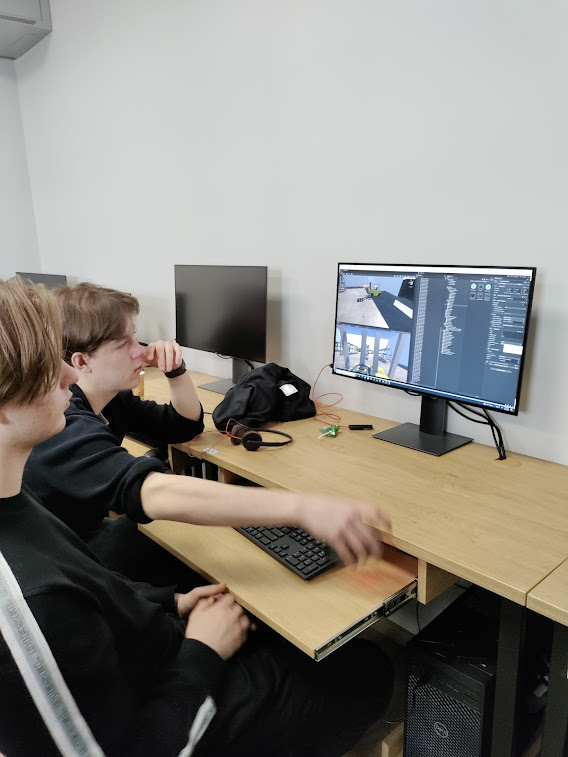
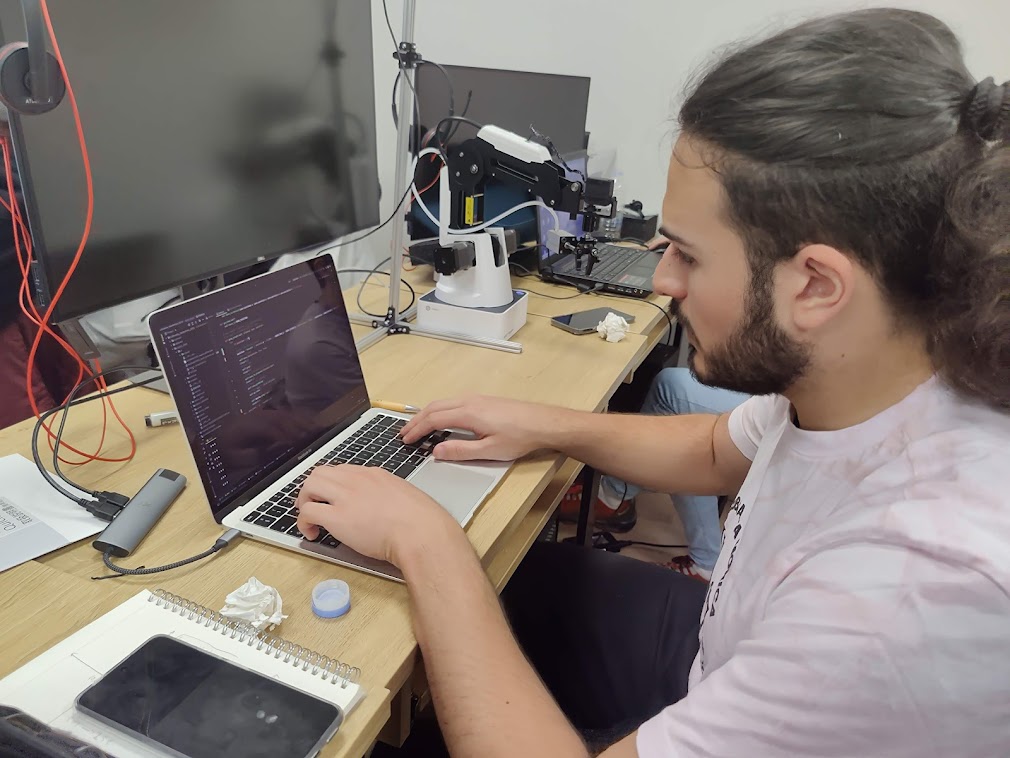
Four days of the hackathon were dedicated to the development of the projects. On the fifth day, presentations were delivered for the audience and the team of judges (representatives of School of Robotics and IT professionals).
The MCAST team presented the EcoBot project. It was developed on the principle of artificial intelligence as a system for recognizing, collecting and sorting rubbish using computer vision, self-propelled cars, and a robotic arm. The team identified the problem, user and functional requirements. They presented the development process in detail, including development challenges and corrective actions. The developed product was demonstrated for the audience.
The presentation of the Maltese team can be found under this link: https://prezi.com/view/4p4X0inZ2JnuhwHYF3cX/
The KITM team developed and demonstrated a fully functional system that can facilitate teachers’ day-to-day work by automatically marking students’ attendance in an electronic school diary using face recognition. During one day, for each teacher this would save about an hour of working time that could be used for actual teaching.
The presentation of the KITM team:
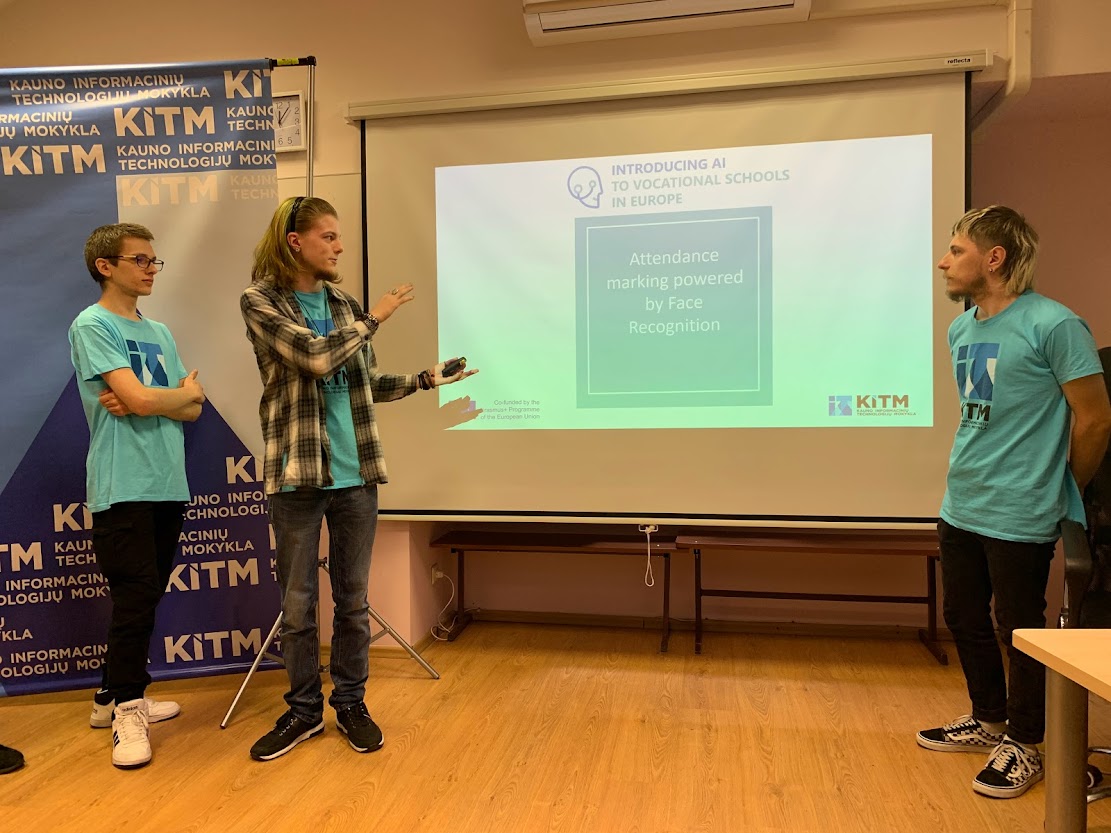
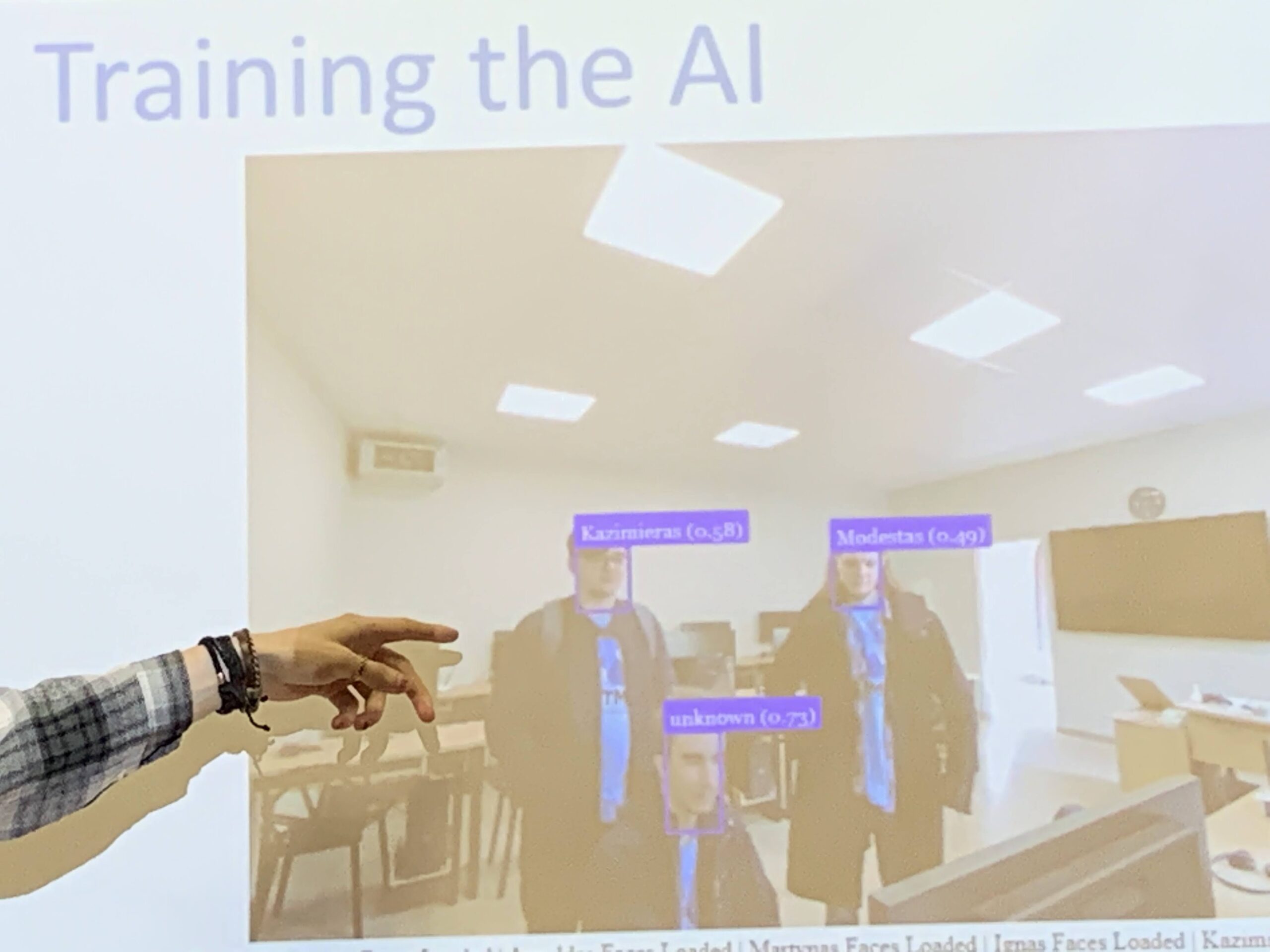
The Sedu team created a concept of a semi-automatic warehouse management system brAIght WMS for small warehouses based on the use of LED bulbs. The system is designed to help employees find goods or orders in stock. The use of LED would make the product affordable than fully automatic systems. It is important to note that some members of the team had worked at a warehouse and suggested the topic for this product based on their experience.
The team made a visual presentation for their product that can be found here: https://esports.sedu.fi/braightwms/
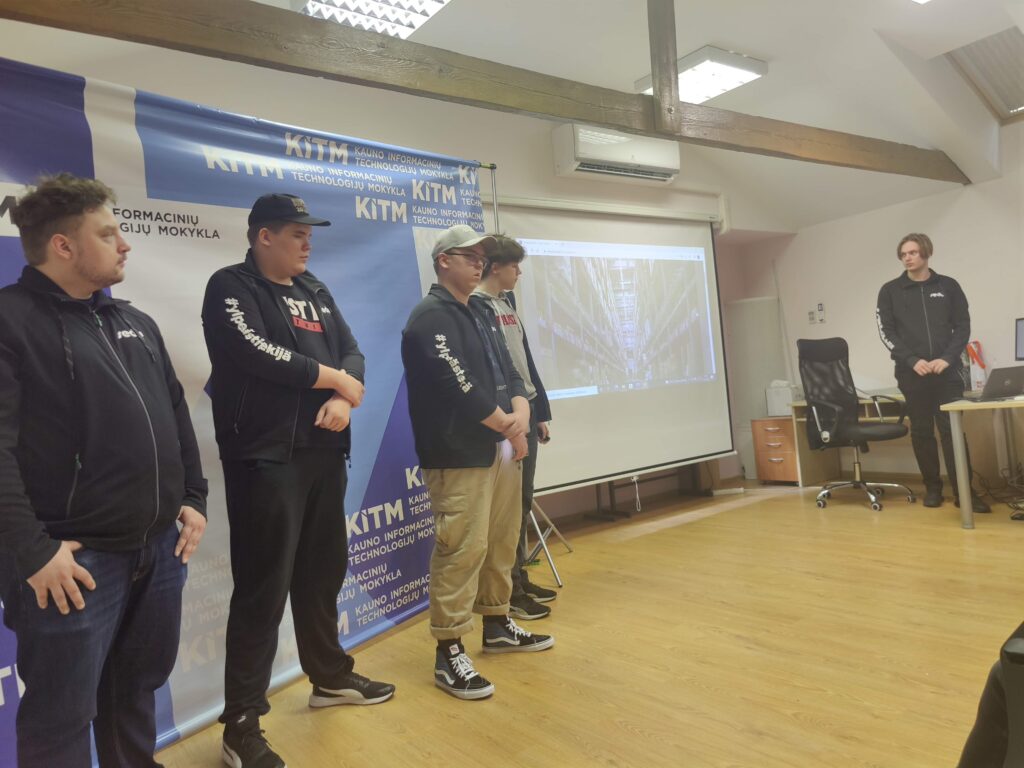
The TAI team developed a concept for a lifestyle app that analyzes user habits and provides leisure, sports, shopping and similar proposals. The app helps the user to take care of a healthy lifestyle and manage personal budget. It works by using artificial intelligence, which analyzes the data of the previous day and accordingly offers solutions to improve the quality of everyday life. The team presented a well thought-of marketing campaign for the app.
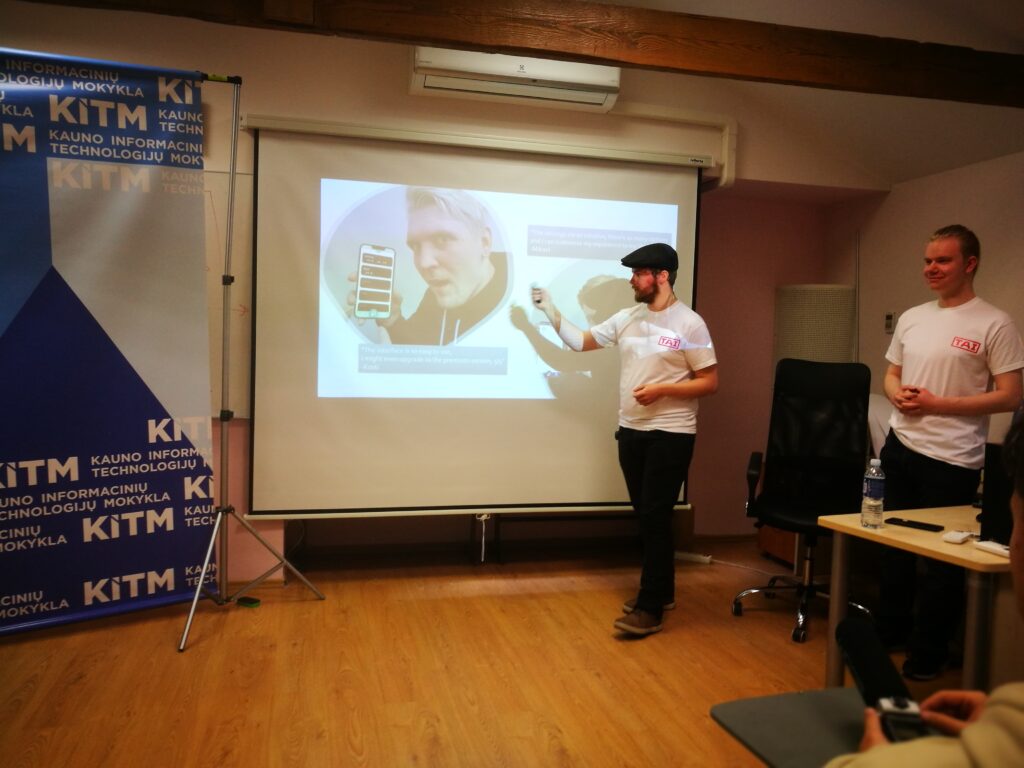
The panel of judges awarded first place to the Maltese team, which managed to create a working product during the hackathon and demonstrate it during the presentations. In addition, the team used a variety of AI programming tools and knowledge gained during the pilot course “Introduction to AI”.
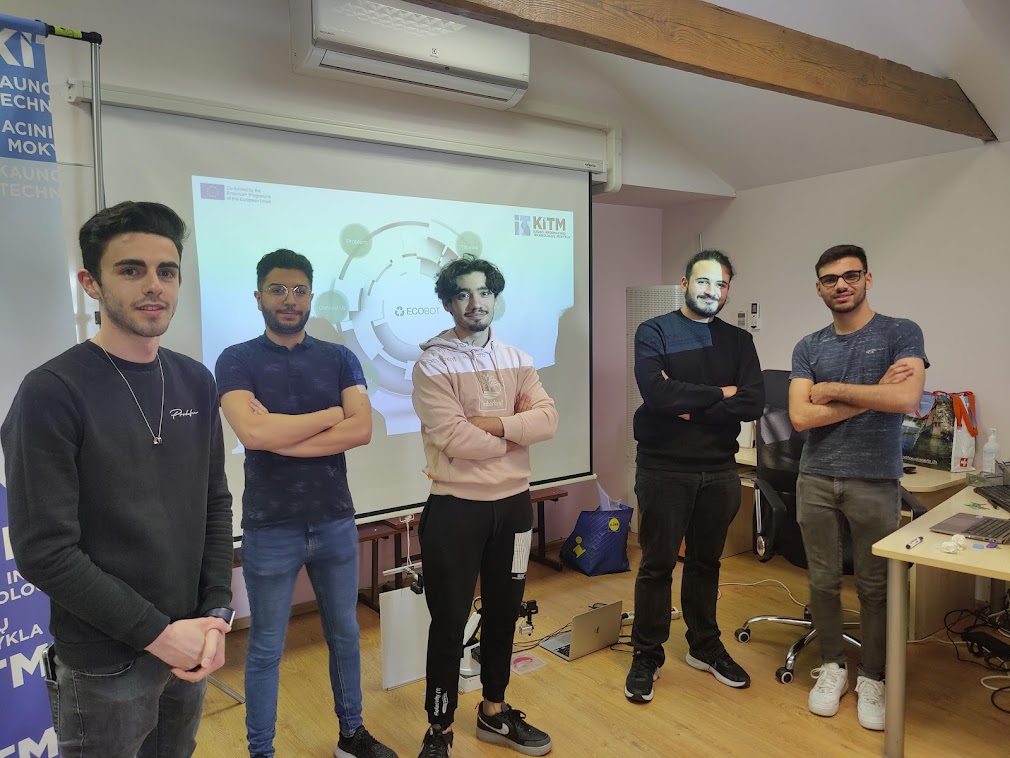
Second place went to the KITM team, and the Finns shared III and IV places.
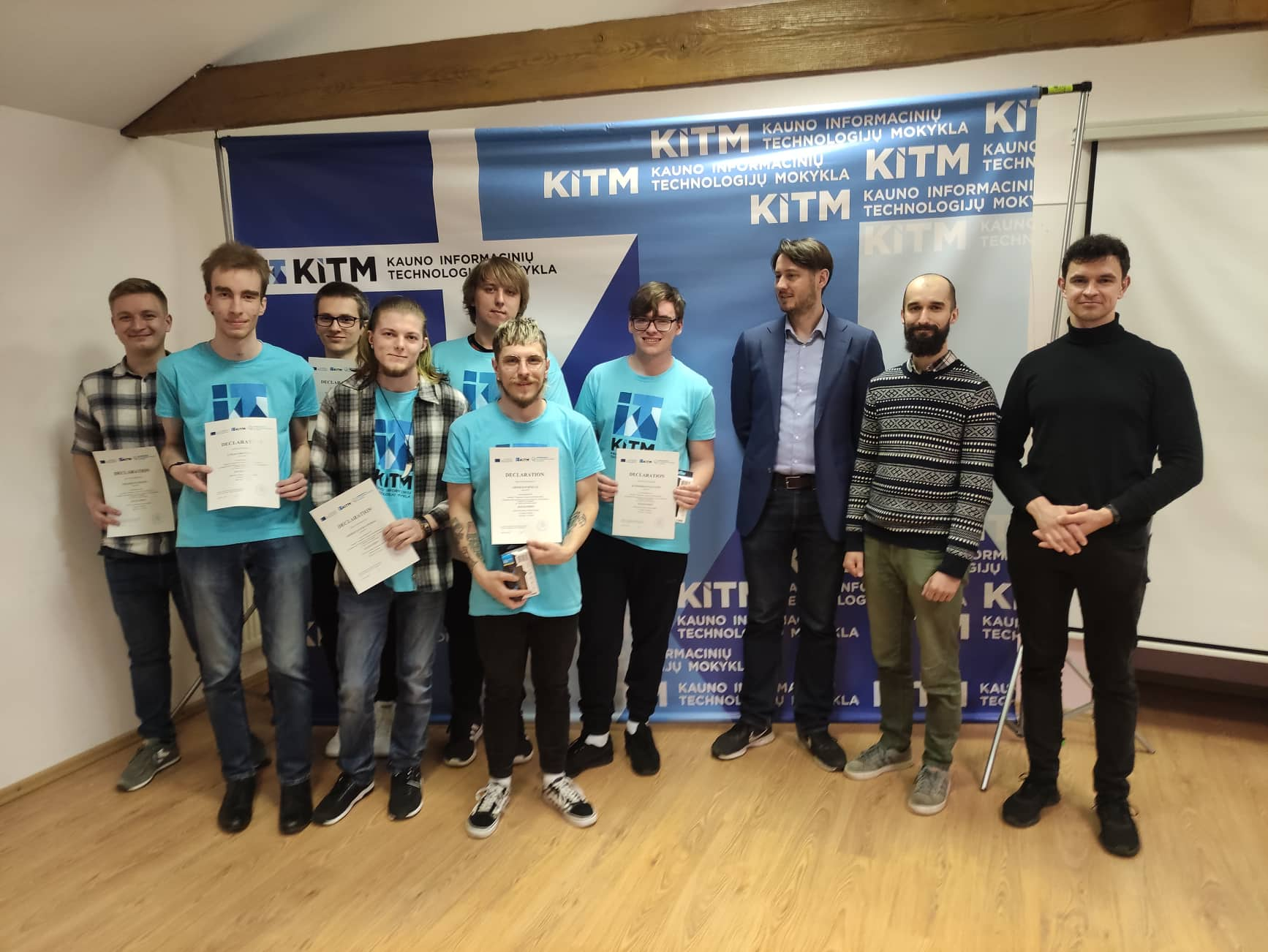
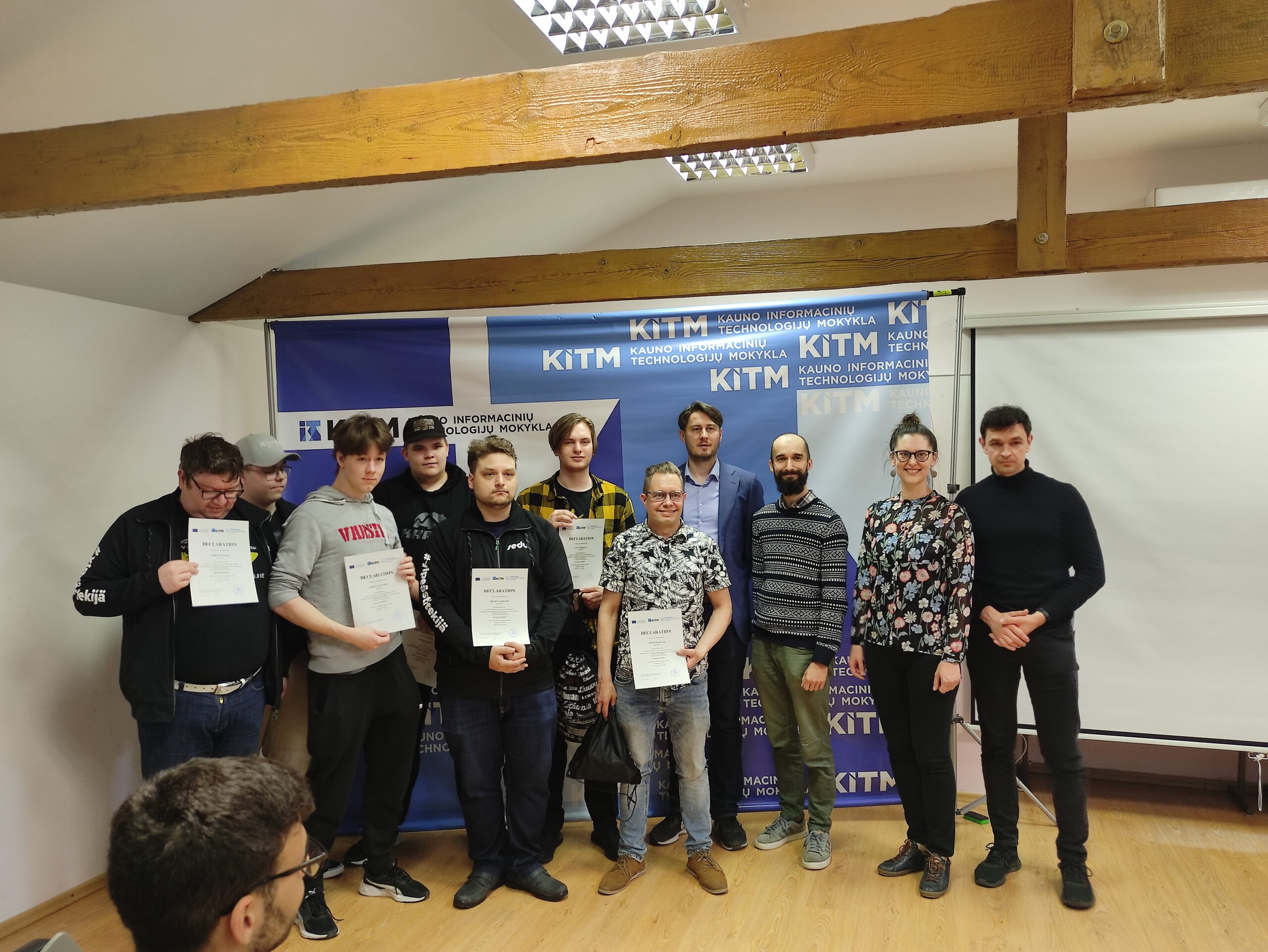

After the award ceremony, a visit to Trakai was offered to the guests, where they had a chance to visit a castle and try out local Karaim food kibinai. The Maltese team could go on a boat trip on the lake as a prize for the 1st place.
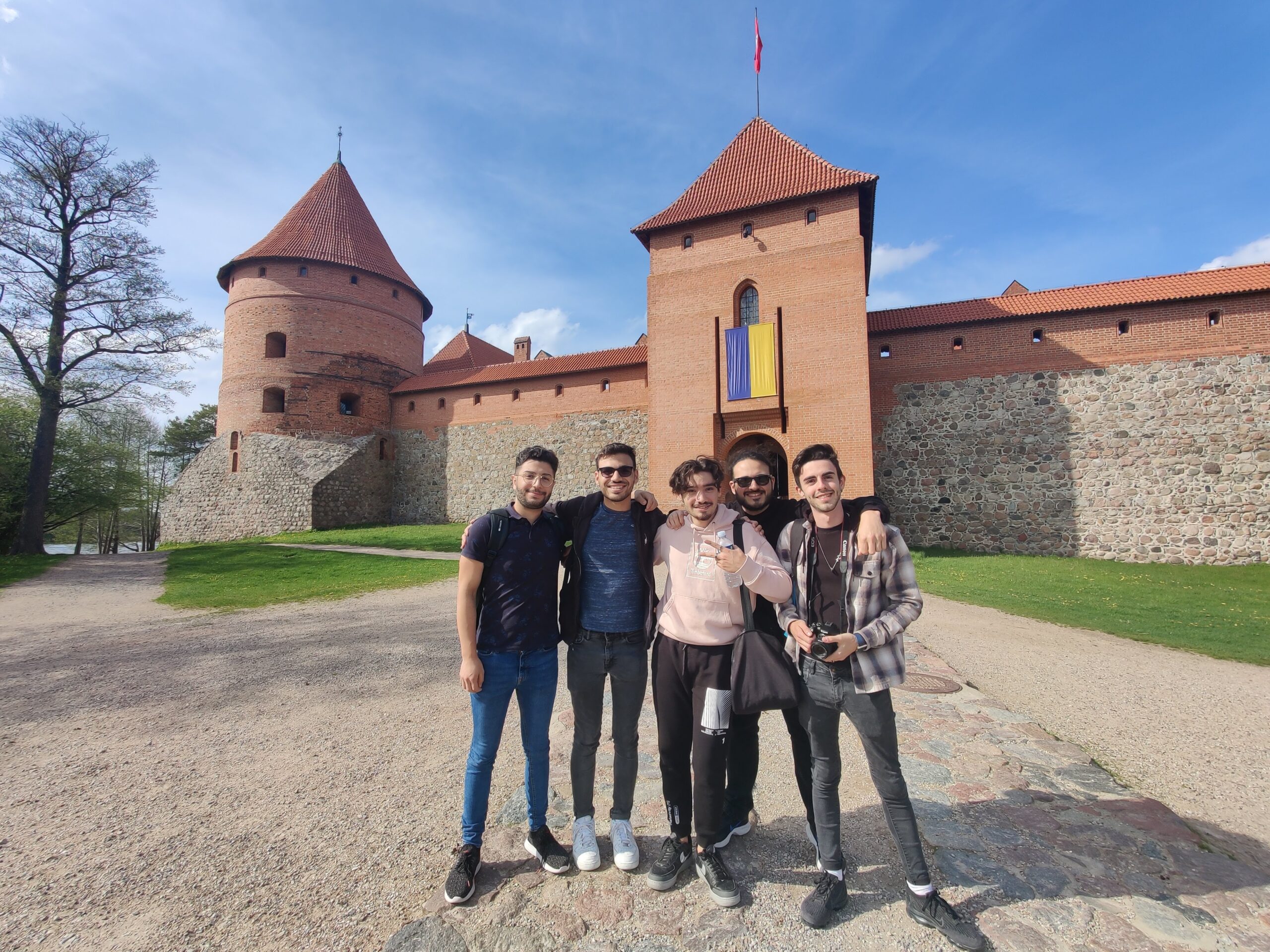

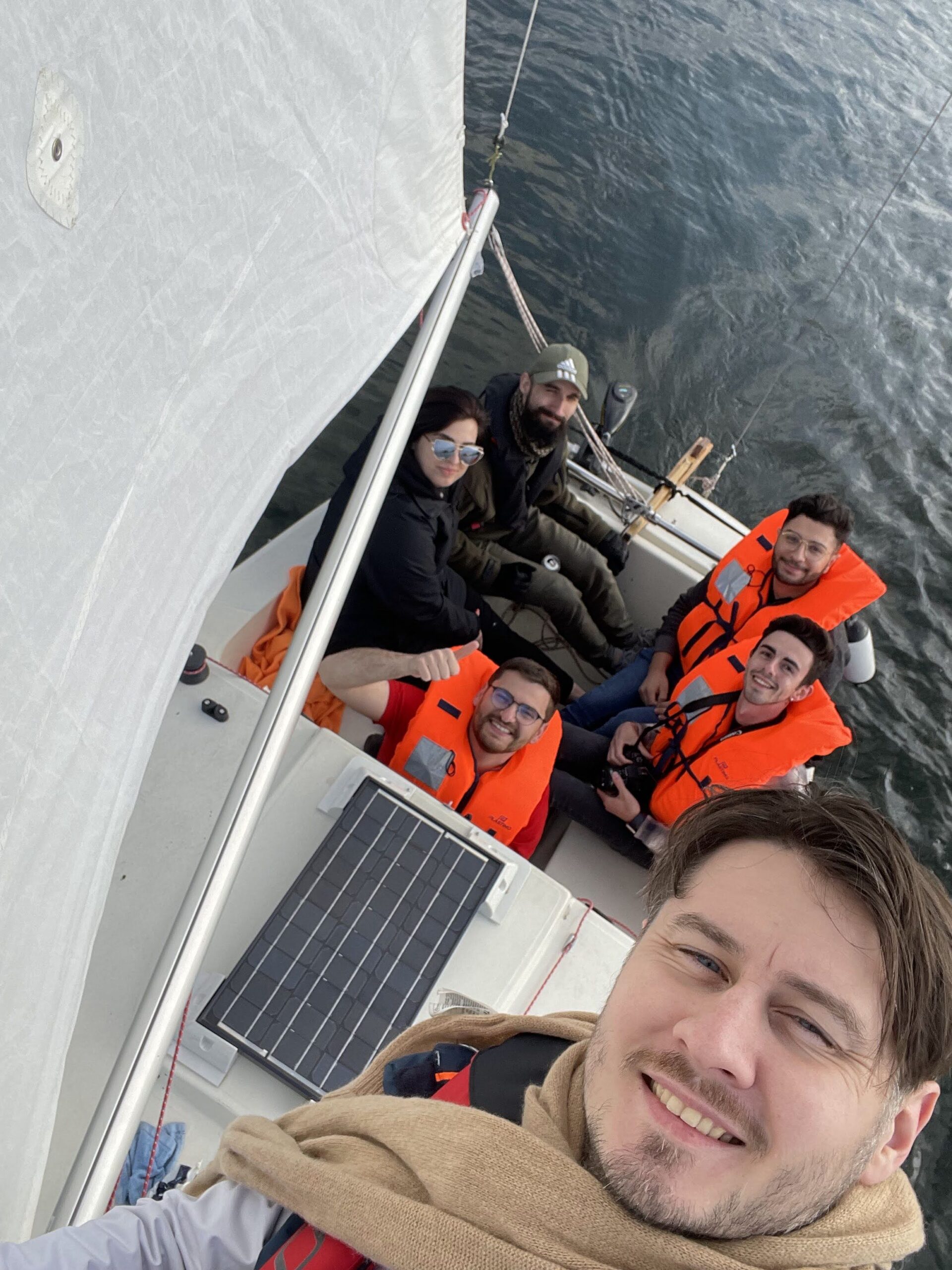
Overall, the hackathon has reached its goals:
- To give a chance to the students to use the knowledge they gained in the pilot course;
- To learn new things while working on their projects;
- To make them think of and better understand AI applicability in different areas;
- To replicate product development processes as they are in IT companies;
- To observe the effect of the Introduction to AI pilot course on student skill development.

